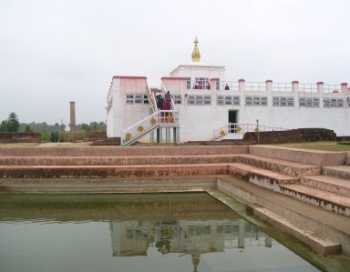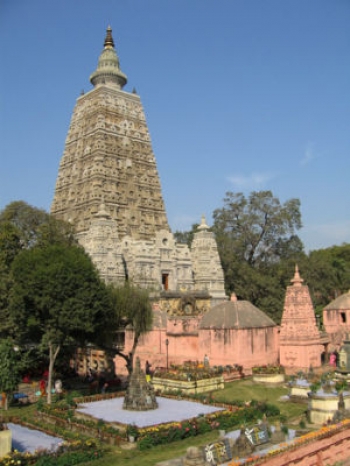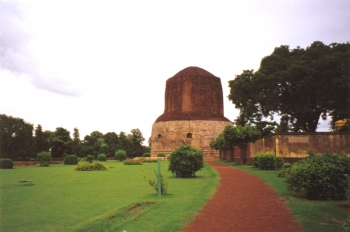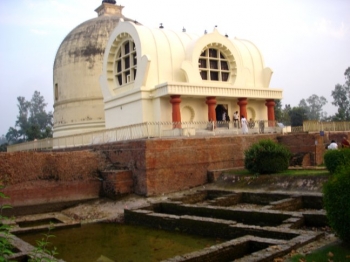I remember watching a friend perform once in a play. My friend played an ordinary pedestrian on the street, was in a scene where he handed over some money to a grateful beggar, played by another of his friends, but soon afterwards the other actors, who were also playing beggars, accosted him. They demanded that my friend’s character also give them money – after all, he had just been so magnanimous to one of them, why should he not be to others? Obviously, short of being a millionaire with time and money to burn, ordinary people do not wander the streets dishing out loose change, and more importantly, even such benevolence does not get to the roots of the poverty problem.
Addressing poverty is so much more than merely giving someone more money. It involves overhauling many structural flaws in government policy, business practices and long-seated prejudices and assumptions about how we can alleviate suffering.
This dilemma of generosity was evermore apparent when I travelled in South Asia. While in India and Nepal on pilgrimage, like everyone else who has been to the four holy sites of the Buddha, I could not help but notice the tragic, abject poverty that blights not only the people’s lives there, but also the very notion that Lumbini, Bodhgaya, Varanasi and Kushinagara are beacons of light to the world. In Lumbini, the famous Asokan pillar the watches over the structures commemorating Maya and baby Siddhartha is one of the better-preserved landmarks of an ancient age. But otherwise the area is not growing and thriving. We have had a Chinese foundation pledging to turn Lumbini into a Mecca for Buddhists – The Asia Pacific Exchange and Cooperation Foundation has devout Buddhist Xiao Wunan as its executive vice president. However, the Nepalese authorities have yet to demonstrate that they are serious about or even wish to accommodate such a substantial Chinese investment.
The Indian government has had its own setbacks in developing its Buddhist sites to the standards the latter deserve. Despite their spiritual heritage as worldly locations on which the Buddha’s feet trod, poverty is a moral problem that remains rampant around these four spots of pilgrimage. Bodhgaya is the most well known of all the sites and its atmosphere is unique. Yet it is because of frequent visitors that Bodhgaya is “sanitized” for the comfort of foreigners from Asia and the West. One only needs to leave the sanctuaries and cloisters of Bodhgaya, go back out on the streets, and a familiar sight waits. Varanasi and Kushinagara are not so well disguised, and the poverty is palpable as a stark but unavoidable sight. Indeed, we should not make an effort to avoid having our comfort challenged. Indeed, there is urgent work to be done.
We must do our utmost to spread awareness and initiate gradual changes at the grassroots level to the suffering of those living at these locations. We need to encourage and lobby our governments to save these holy sites for the dignity, health and survival of the people there. It is uncomfortable for me to stake an argument around this, but a personal dimension to the poverty was made clear to me when I saw young children begging for money – specifically, the USD we had in our pockets. They follow foreigners, mumbling “Hello, hello” and even “Amituofo” to East Asian pilgrims. I do not know where these children came from – perhaps they are orphans, perhaps they come from families, or perhaps they are even exploited or trafficked by adults to garner monetary sympathy from unsuspecting visitors. I suspect it is a combination of many causes and conditions created by long-standing social injustices.
Poverty is a completely avoidable tragedy. It is a human-made evil, an injustice and affront to dignity and common decency that must be fought with the pen, the donation, the grassroots organizations, the activists, and the heart. I began this piece with an observation about the dilemmas of generosity. These dilemmas do exist and I have no confident answer to them, but they are merely technical concerns that concern “how” we should approach the vocation of generosity. But the vocation itself is not in question. There is no dilemma in this regard: we are called by the Buddhist teachings, as demonstrated in the very first p?ramit? of the Six Perfections: generosity. We Buddhists need to grapple with realpolitikand NGO’s, to learn from their methodologies and how they effect change in poverty-stricken areas. A day when Lumbini, Bodhgaya, Varanasi and Kushinagara can boast of higher standards of living, hence elevating the dignity and spirituality of all their citizens – could there be a greater joy?


















